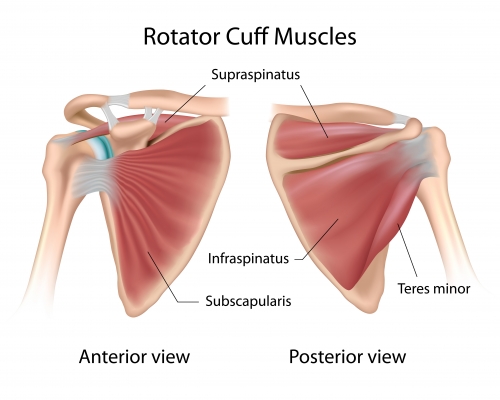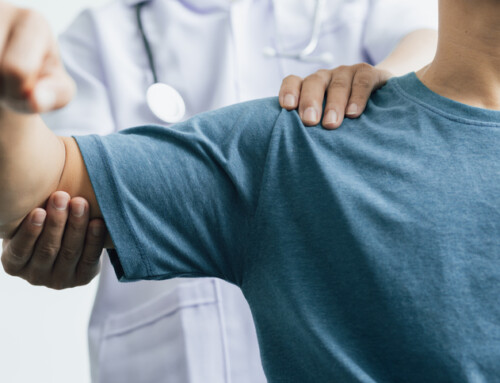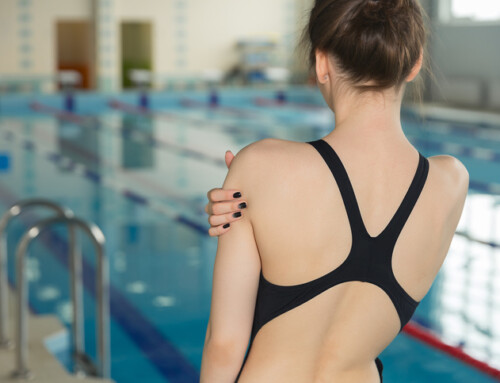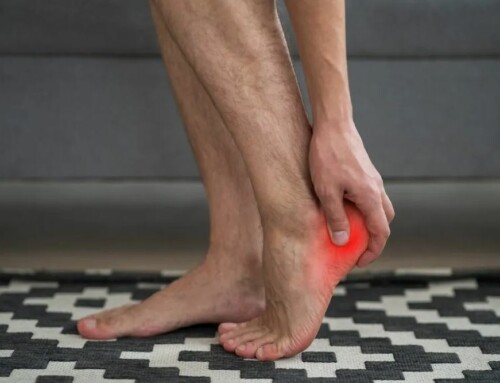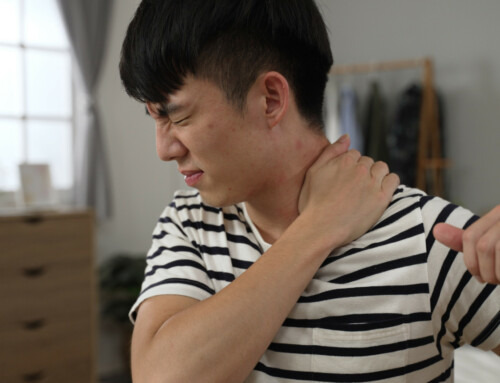The doctors of physical therapy at Capital Area Physical Therapy and Wellness are highly trained in assessing and treating the root causes for shoulder pain, impingement and rotator cuff problems, both before and after surgery.
The rotator cuff is a group of 4 shoulder muscles and tendons which connect the humerus (upper arm) bone to the shoulder blade. These muscles are not only important in helping to move your arm, but are even more important in controlling the movement at your shoulder, and making sure the movement is smooth, fluid, and painfree.
If you are older than age 40, you’ve probably known someone that has had a problem with or tear in their “rotator cuff”. There’s a reason for this; typically as we age there is a potential for bony spur formation (arthritis) in the shoulder joint, as well as gradual fraying of the tendons of the rotator cuff. It can happen at any age, but tearing of these tendons can occur over time with months/years of microtrauma caused by these bony spurs (chronic tear), vs an acute tear, which occurs with a specific injury (i.e. being pulled abruptly by a dog leash is a very common one we see). Often times shoulder dysfunction is described as impingement, with or without a tear. This is a scenario in which the space in the shoulder joint is decreased and “pinching” together, and can eventually contribute to a tear. It can be quite painful. A tear in these tendons can cause significant disability and limitation in someone, especially those who use overhead motions during their job/activities of daily living.
A few things we’ll look at:
- The mobility of your neck, upper back, shoulder/AC joints
- The control of certain muscles around your shoulder, shoulder blade, and trunk
- Your posture and how you use your arm during certain daily activities
- The quality and quantity of your motion and how you use your arm
Don’t live with rotator cuff, impingement, or shoulder pain. The right treatment can make the difference.
Contact us at 518-289-5242 for the Malta Clinic, the Queensbury Clinic or the Saratoga Clinic.


